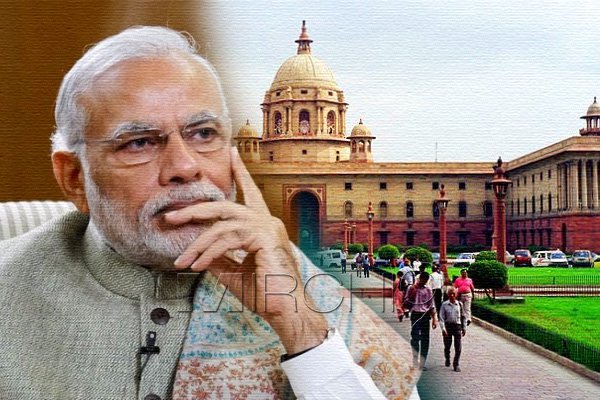The tussle between executive and judiciary is as long as the constitution itself. It has evolved a lot with new cases and judgments coming up. The change in power equations depends on the government at the center. If the central government is in power with the full majority then it tries to clip the wings of the judiciary and if a coalition of many parties is in power at center then judiciary expands its power. The power tussle is good for the democratic environment of the country but some hereditary rights of the courts are not.
The appointment of judges is done through collegium system which had its genesis in, and continued basis resting on, three of its own judgments which are collectively known as the Three Judges Cases. In the collegium System, the Chief Justice of India and a forum of four senior-most judges of the Supreme Court recommend appointments and transfers of judges. This system is being followed since 1998 and the previous governments did not interfere in this because they were coalition governments and did not want to take on the judiciary. But the collegium system was very unfair and the appointment of judges has become blatantly nepotistic over the last decades. The irony is that the courts keep telling that the politics of the country is very nepotistic with most of the parties being family fiefdoms. The current Chief Justice of India (CJI), Dipak Misra is the nephew of former CJI Ranganath Mishra who held the post from September 1990 to November 1991. Many other judges of High Courts and Supreme Court come from same families.
Now the central government has started showing the mirror to Supreme Court Collegium by referring to the cases of nepotism in proposals for a judgeship. The Centre has for the first time mentioned relationships of advocates with sitting and retired HC and apex court judges in at least 11 instances among 33 recommendations for the Allahabad HC. The government has forwarded the list of 33 advocates for the judgeship with its own findings to the apex court Collegium after a rigorous evaluation of their competence. The candidates whose names were recommended by the Allahabad HC collegium in February were evaluated on the basis of their reported judgments, reputation in the legal fraternity both personal as well as professional and overall competence. But for the first time, the government also pointed out relations of many of these candidates with the sitting and retired judges, making a point for the apex court collegium to disregard all such recommendations based on nepotism and create a level playing field for other competent advocates to make the grade. The list sent by the Allahabad HC collegium consisted of close relatives of judges, including the brother-in-law of a sitting SC judge, a first cousin of another SC judge besides sons and nephews of several former judges of the apex court and the Allahabad HC. There were numerous cases of blatant nepotism in the past as well.
The Modi government has brought the National Judicial Appointments Commission (NJAC) Act in 2014 to give politicians and civil society a final say in the appointment of judges to the highest courts. The act was passed in both houses and got president’s assent but it was declared unconstitutional by the Supreme Court of India. The apex court in its controversial judgment said the law could not be implemented because it is against the ‘basic structures of the constitution’. It was alleged by the Supreme Court that the law interferes in the independence of the judiciary. Whether the allegations of the court are true or not that is debatable but even if the court wants to continue with collegium system, it must find some cure to blatant nepotism in the judiciary.
